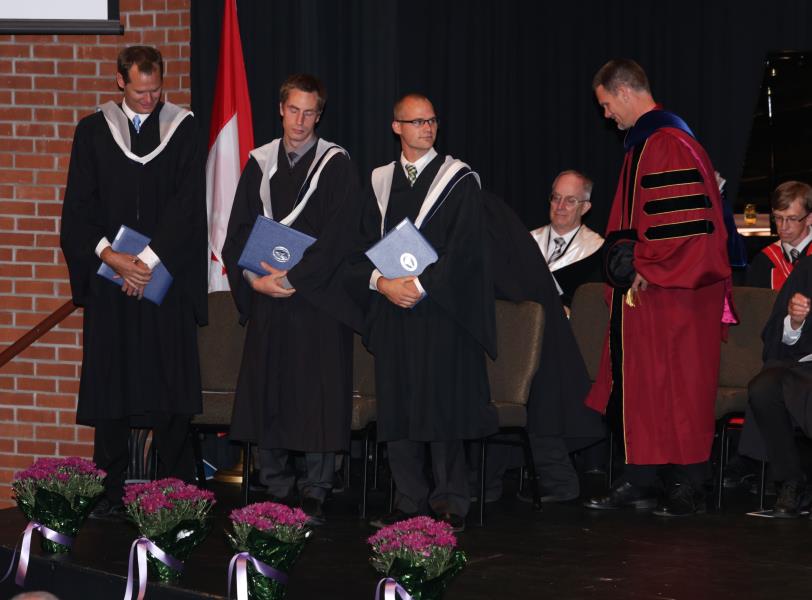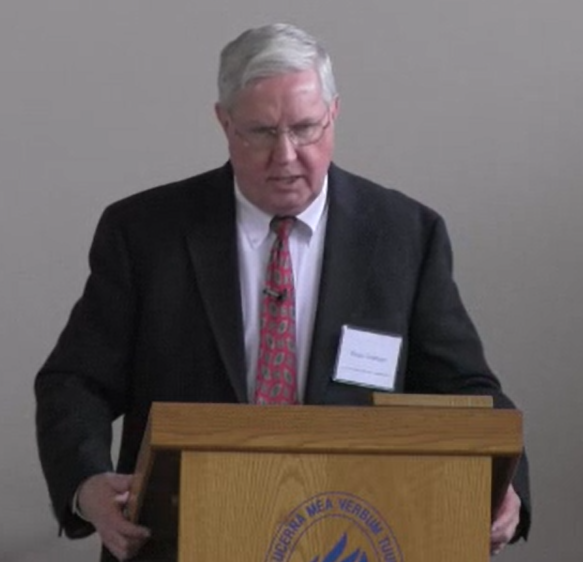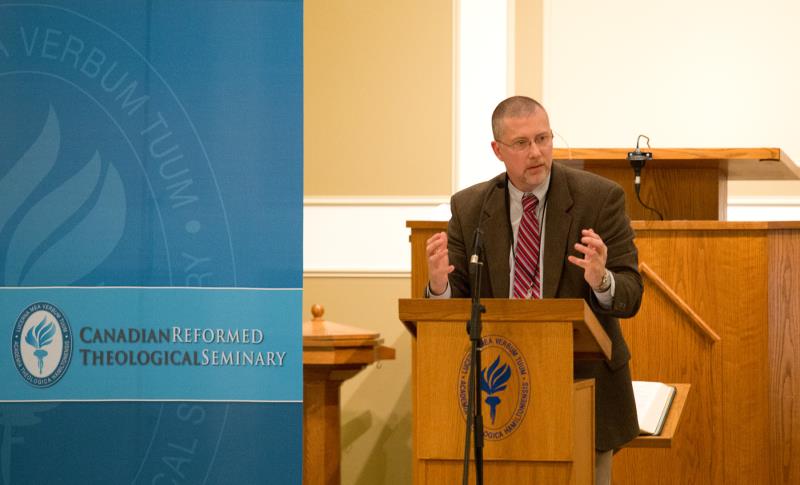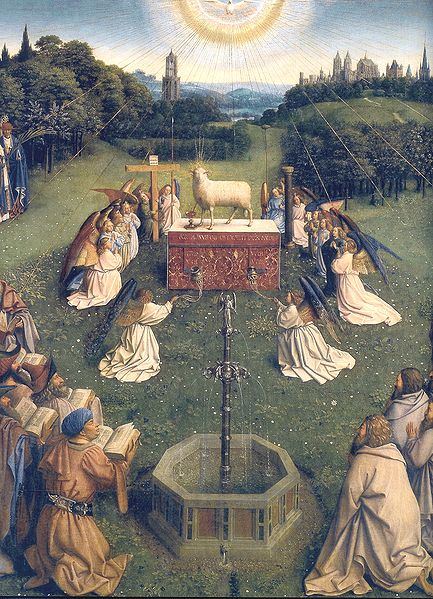Videos
45th Anniversary Meeting and 40th Convocation of the Canadian Reformed Theological Seminary. Dr. Van Raalte’s keynote speech was “The Reason for Our Hope: Christ in our Apologetics.” It begins at the 24 min 39 s mark in the video.
May 20, 2015Recorded during the 2015 CRTS Conference.
Dr. Visscher examines some of the passages which deal with the doctrine of the new earth. Does the fire described by Peter in 2 Peter 3 eliminate the possibility of a new earth? Just how much can we expect of an eternal physical existence, according to Scripture? He also draws some conclusions regarding the question to what degree a new earth can be part of the believer’s hope and the church’s expectation.May 20, 2015Recorded during the 2015 CRTS Conference.
Dr. Smith proposes a distinction between finding eschatology by way of explication (mining passages containing direct information about the end), by way of implication (exploring typological features, secondary fulfillments, etc.), and by way of application (pulling through eschatological lines; drawing out the significance of a passage for our future hope), illustrating the importance of such a distinction with samples from the book of Psalms. He concludes by asking in what sense an OT book can be called eschatological.May 8, 2015When Christians hear the word “love,” they quickly think of 1 Corinthians 13, and rightly so. However, how can the Apostle Paul say that “love never ends,” when in reality we see many different situations in which love is put under stress and, at times, even seems to come to an end. God’s Word in 1 Corinthians 13:8 forms the basis for this speech by Dr. Van Vliet, given to a youth rally in Ontario in 2014.
May 8, 2015Talk delivered by Rev. Ross W. Graham at the 2nd annual CRTS Lecture Series – Rejoicing in Growth: Church Planting and Evangelism.
May 8, 2015A close look at Christ as our chief Prophet, only High Priest, and eternal King. Also, the implications of this for the lives of Christians is explored.
May 7, 2015Recorded during the 2015 CRTS Conference.
Dr. Tipton argues that 2 Cor 3 does not draw the absolute contrast of letter and Spirit that some might discern. Rather, Paul speaks of what once gave life and righteousness (the letter) by comparing it to the super-abounding righteousness, life and glory of Christ, as well as the life-giving Spirit. The contrast is therefore a relative one that demonstrates how much richer God’s people are after Pentecost, in some ways even richer than Adam and Eve in Paradise.May 5, 2015The Heidelberg Catechism is known for its warm, personal tone. In this speech the author explores why this Catechism uses personal pronouns, such as I, me, and my when it does.
April 30, 2015The Heidelberg Catechism, as a summary of God’s Word, is used regularly in the afternoon worship service of many Reformed churches. How can the preacher keep his catechism sermons vibrant when he comes back to the same Lord’s Days year after year?
April 29, 2015Recorded during the 2015 CRTS Conference. Dr. de Visser begins by discussing Biblical foundations for the topic. Next he argues that faithful preaching should have a distinct eschatological quality. Then he examines what eschatological elements are found in the Reformed worship service, including psalms, hymns, and liturgical forms.
April 29, 2015Rev. G.Ph. Van Popta, pastor of Jubilee Canadian Reformed Church in Ottawa, ON, discusses his experiences of preaching through the book of Revelation, and the lessons he has learned. Recorded during the 2012 CRTS Interim Semester.
April 27, 2015Dr. T.G. Van Raalte discusses the 2011 Metro Vancouver church planting initiative. Delivered at the second annual CRTS Conference in 2012.
“Rejoicing in Growth: Church Planting & Evangelism”April 27, 2015










